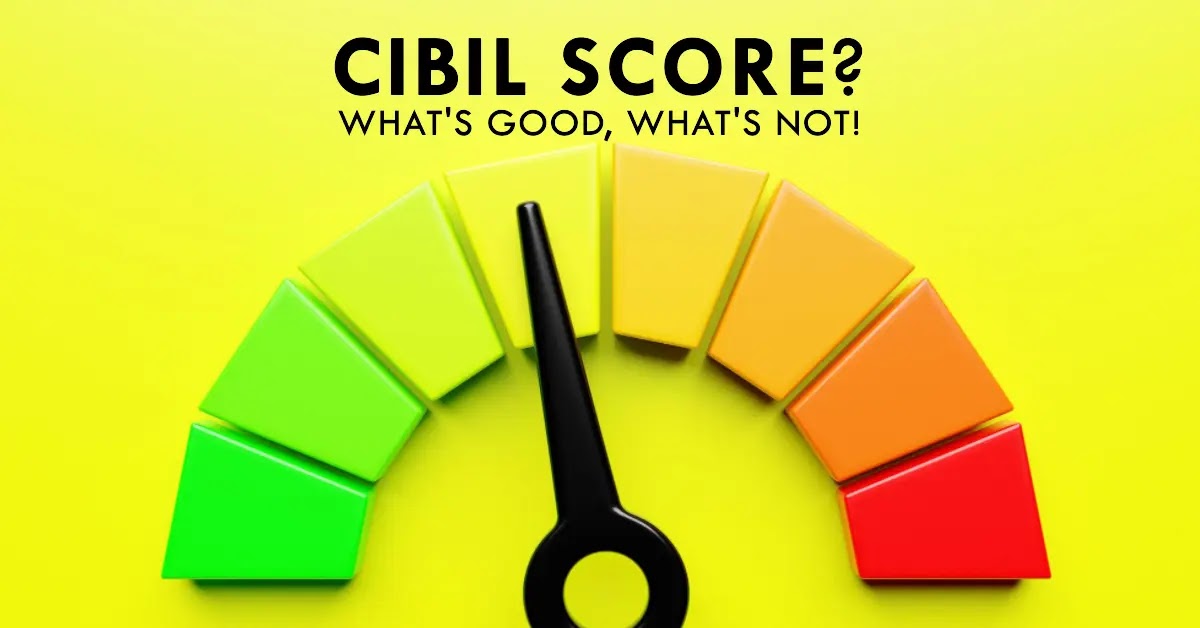Yeah. That’s your CIBIL score doing the talking. Loudly. Sometimes rudely.
Let’s be honest, most of us didn’t even know we had a CIBIL score until someone at the bank made that I-know-something-you-don’t smirk and whispered,
“Your score isn’t looking great.” Gee, thanks Rajiv, that’s helpful.
So, what is this mystical three-digit number that apparently determines whether you can buy a house, get a new phone on EMI, or even feel like a functioning adult?
Let’s break it down.
The Basics (a.k.a. The Boring Bit That Actually Matters)
CIBIL stands for Credit Information Bureau (India) Limited. They're like the nosy neighbor of the financial world always watching, always remembering, and never forgetting that one time you missed your credit card payment in 2018.
Your score ranges from 300 to 900.
More than 750? The bank rolls out the red carpet.
Below 600? Expect suspicious glances and very long “processing times.”
Between 650–749? You’re in the murky gray zone, neither fabulous nor a financial disaster. Like lukewarm tea.
Simple enough, right? But here's where it gets spicy.
What’s Good Anyway?
A score above 750 is the financial equivalent of having your act together. It tells lenders you’re responsible, predictable, and dare I say mature. In return? Lower interest rates. Faster approvals. Possibly even a friendly nod from your banker. You might as well walk into the branch in slow motion with theme music.
But wait. Ever wondered how you get a good score?
No, it’s not by manifesting good vibes or reciting affirmations to your wallet.
You build it by:
- Paying your bills on time. Every. Single. Time.
- Not maxing out your credit cards like there’s no tomorrow.
- Keeping your credit mix balanced. Personal loans, credit cards, maybe a car loan if you're fancy, diversity helps.
- Not applying for loans every time you sneeze. Too many inquiries make you look desperate. Not cool.
What Drags It Down?
Missed payments. High credit usage. Defaulting on a loan. These are the usual villains.
But here’s a lesser-known horror: Closing your oldest credit card.
Yes, that card you’ve had since your broke college days even if it comes with a tacky design and zero perks. Turns out, old credit history boosts your score. Who knew?
Also, checking your own score doesn’t hurt it. That’s a myth. Like thinking an extra scoop of ice cream cancels out because you walked two flights of stairs. Nope. Still calories. Still counted.
Wait, Should I Even Care?
Good question. Do you like money? Then yes, you should care.
Your CIBIL score is like your financial dating profile. Banks, NBFCs, credit card companies they all look at it and decide if you’re worth the risk. You could have a stable job, zero debts, and a decent savings account, but if your score sucks, guess what?
Denied.
Like being ghosted after a great first date because your Instagram is set to private.
Practical Tips (aka The Part Where You Take Notes)
- Set up payment reminders. Adulting is hard. Alarms help.
- Don’t go wild with credit limits. Just because they offer doesn’t mean you swipe.
- Keep your credit utilization ratio low. Fancy term, but just means don’t use up all your available credit.
- Be patient. Scores don’t shoot up overnight. Unless you know someone at CIBIL. (Kidding. Mostly.)
Let’s Get Real for a Second
Life’s messy. Sometimes you forget. Sometimes you overspend. Sometimes your phone breaks right when your EMIs are due. That’s fine. Just don’t ignore your score like it’s some mystical force beyond your control.
It’s a number, yes. But it’s also a reflection of how you handle responsibility when no one’s watching. Like brushing your teeth. Or not texting your ex.
So here’s your call to reflection:
Are you treating your money like a partner or a one-night stand?
Because how you manage it today decides whether your future self is sipping chai in your dream home or still explaining to lenders why your credit score is "unusually complicated."
You don’t need to obsess over it. But you damn well better respect it.
Now go. Check your score. Own it. And maybe, just maybe start being a little less financially chaotic.

